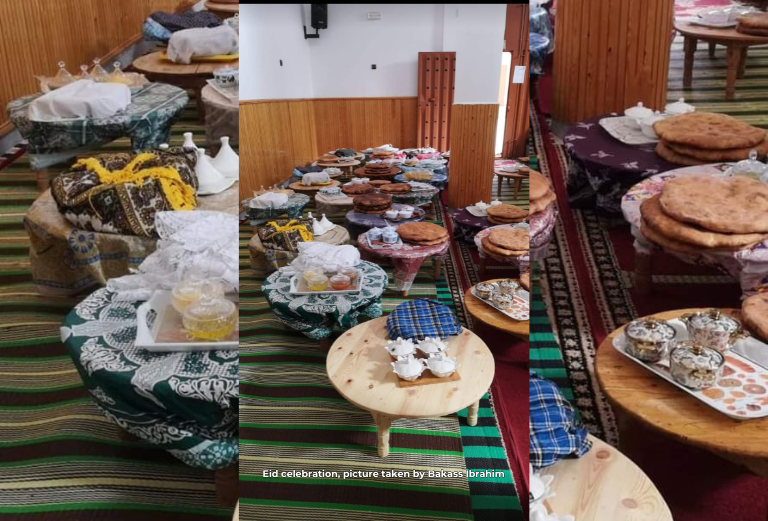Idernan

Credit: Bakass Ibrahim
| Giver: | Community |
|---|---|
| Receiver: | Individual or unstructured/informal group |
| Gift: | Other |
| Approach: | Other |
| Issues: | 1. No Poverty, 10. Reduced Inequalities, 2. Zero Hunger, 3. Good Health and Well-Being |
| Included in: | African Philanthropy Narratives |
The following account of Idernan comes from Khadija Amahal, a member of the Amazigh people of southern Morocco. The author has also consulted with others to deepen her reflection.
My grandma, may her soul rest in peace, was a giver. She loved giving everything she owned to make others feel happy, loved, and appreciated. She is one of the people who instilled in me the passion for giving, and I am super grateful to her. One of the seasons or occasions when she gave a lot was during the Idernan celebration. Idernan is a community and family gathering practiced for years in only a specific region in the southern part of Morocco. The Idernan season is an Amazigh cultural heritage and runs from January to March; an ancient custom based on a feast of mutual reception, giving, and hospitality alternating between tribes for three days a week (Thursday, Friday and Saturday). The occasion aims to spread peace, sharing, and harmony and reduce fighting. According to some notables of the Amazigh tribes, the celebration of Idernan establishes a culture of peace and brotherhood between the tribes. At the same time, others also consider it a festive feast with almond blossoms, which is the merit of the tribes celebrating the occasion.
The celebrations are spread throughout the entire region, starting with the tribes of Tafraout, Amlen, Ida Ognidif, and Ait Souab, passing through Tahala, Ida Ousemlal and reaching the tribes of Ida Obaakil, Irsmoken Anzi, and the surrounding areas. Each tribe takes a turn to host the other tribes.
I have been blessed to attend the tradition of celebrating Idernan at my grandmother’s house, where children, adults, and old people come together to share stories and count blessings.
According to my dad, the tradition reinforces the spirit of giving and sharing. On this occasion, families exchange gifts and give money to those in need.
Idernan celebration has seen so much development and improvement since it first started. Nevertheless, its essence is still celebrated up to the present. In the past, people struggled to travel for a long time on their feet or a donkey. Yet, these hardships did not stop them because of their strong attachment to their cultural heritage and need for social connection. It’s very important for today’s youth to know more about this celebration, celebrate it, and transfer it to future generations. Protecting our cultural heritage is our shared responsibility.
Contributor: Khadija Amahal
| Source type | Full citation | Link (DOI or URL) |
|---|---|---|
| Website |
|
https://tiznit24.com/?p=167890 |
| Website |
https://www.aljazeera.net/misc/2019/2/16/%D8%A5%D8%AF%D8%B1%D9%86%D8%A7%D9%86-%D8%AA%D8%B1%D8%A7%D8%AB-%D8%A3%D9%85%D8%A7%D8%B2%D9%8A%D8%BA%D9%8A-%D8%A7%D9%84%D8%B3%D9%84%D8%A7%D9%85-%D8%A7%D9%84%D9%82%D8%A8%D8%A7%D8%A6%D9%84 |
https://www.aljazeera.net/misc/2019/2/16/%D8%A5%D8%AF%D8%B1%D9%86%D8%A7%D9%86-%D8%AA%D8%B1%D8%A7%D8%AB-%D8%A3%D9%85%D8%A7%D8%B2%D9%8A%D8%BA%D9%8A-%D8%A7%D9%84%D8%B3%D9%84%D8%A7%D9%85-%D8%A7%D9%84%D9%82%D8%A8%D8%A7%D8%A6%D9%84 |
| Private Communication |
Lived experience |
- |
| Private Communication |
Prof. Jama Benidir of the Aglu Center for Research and Documentation |
- |